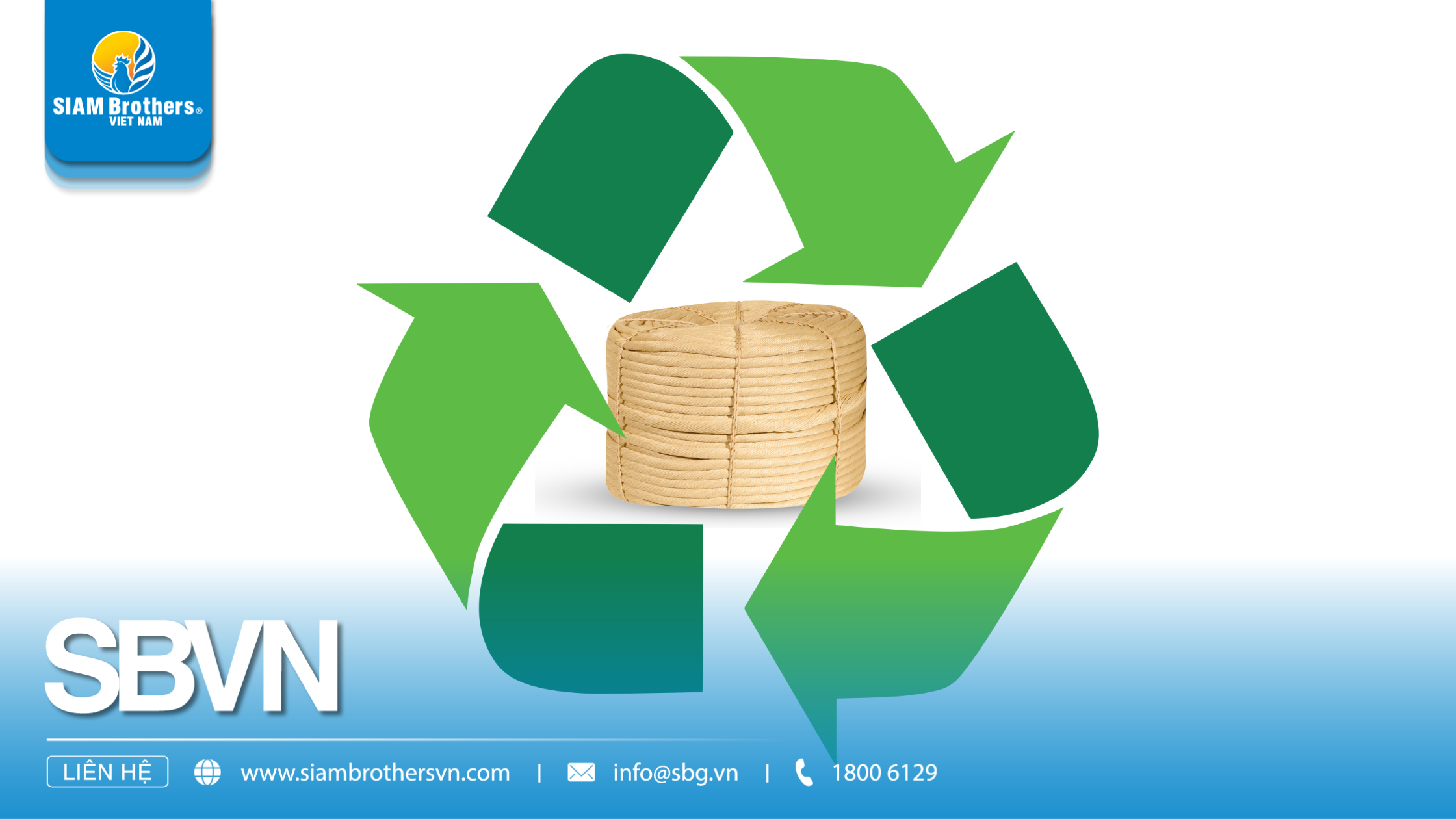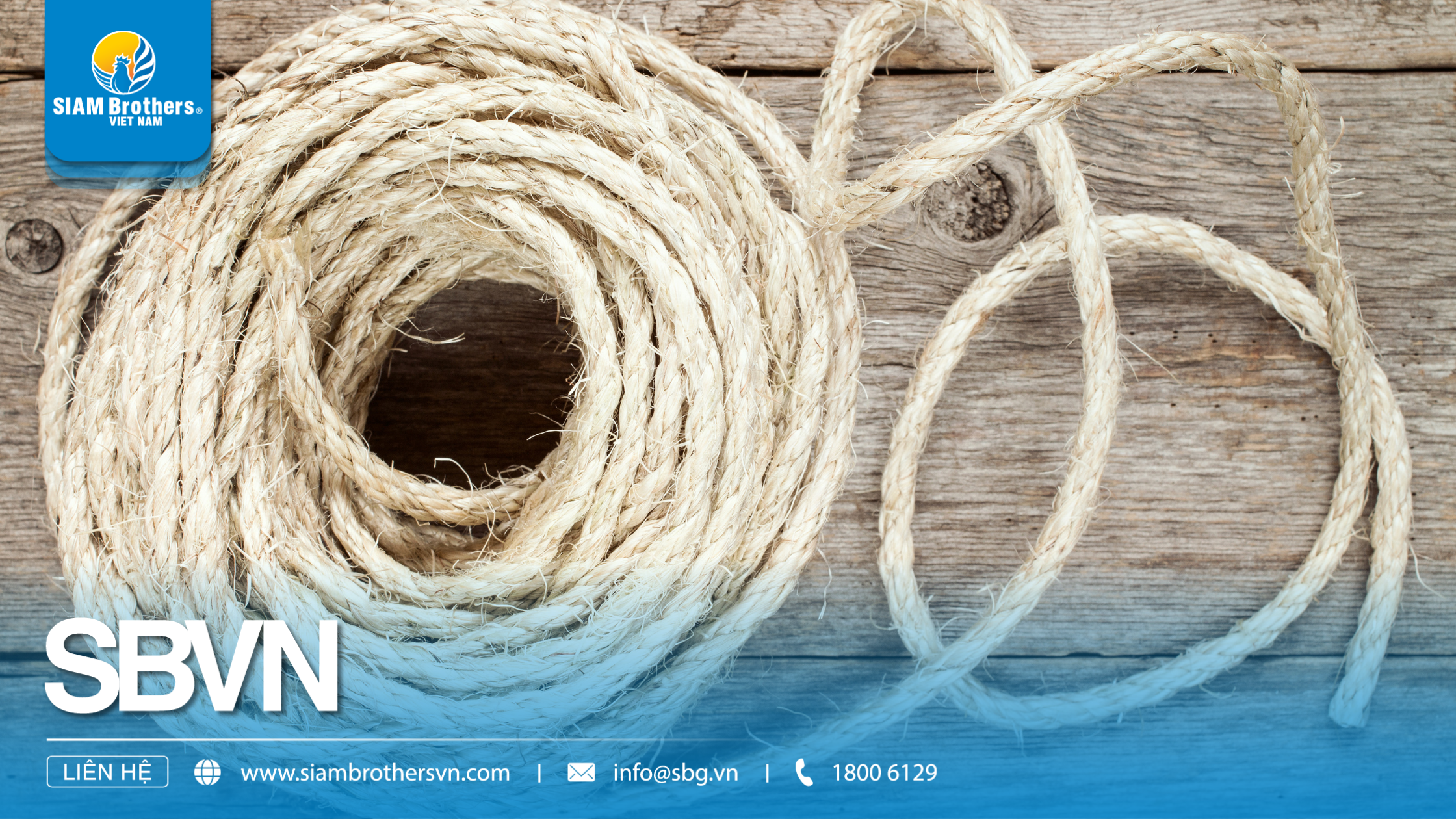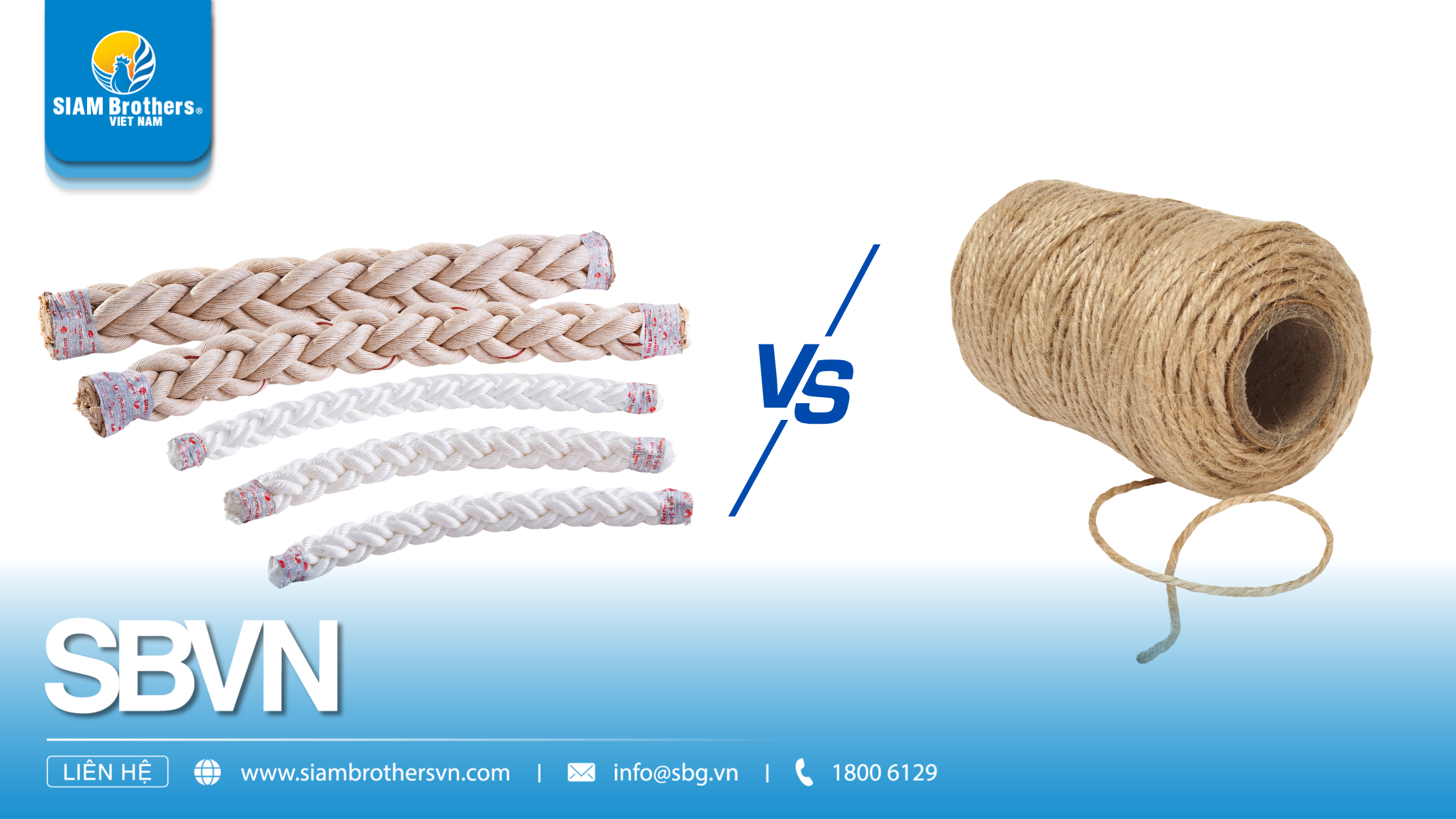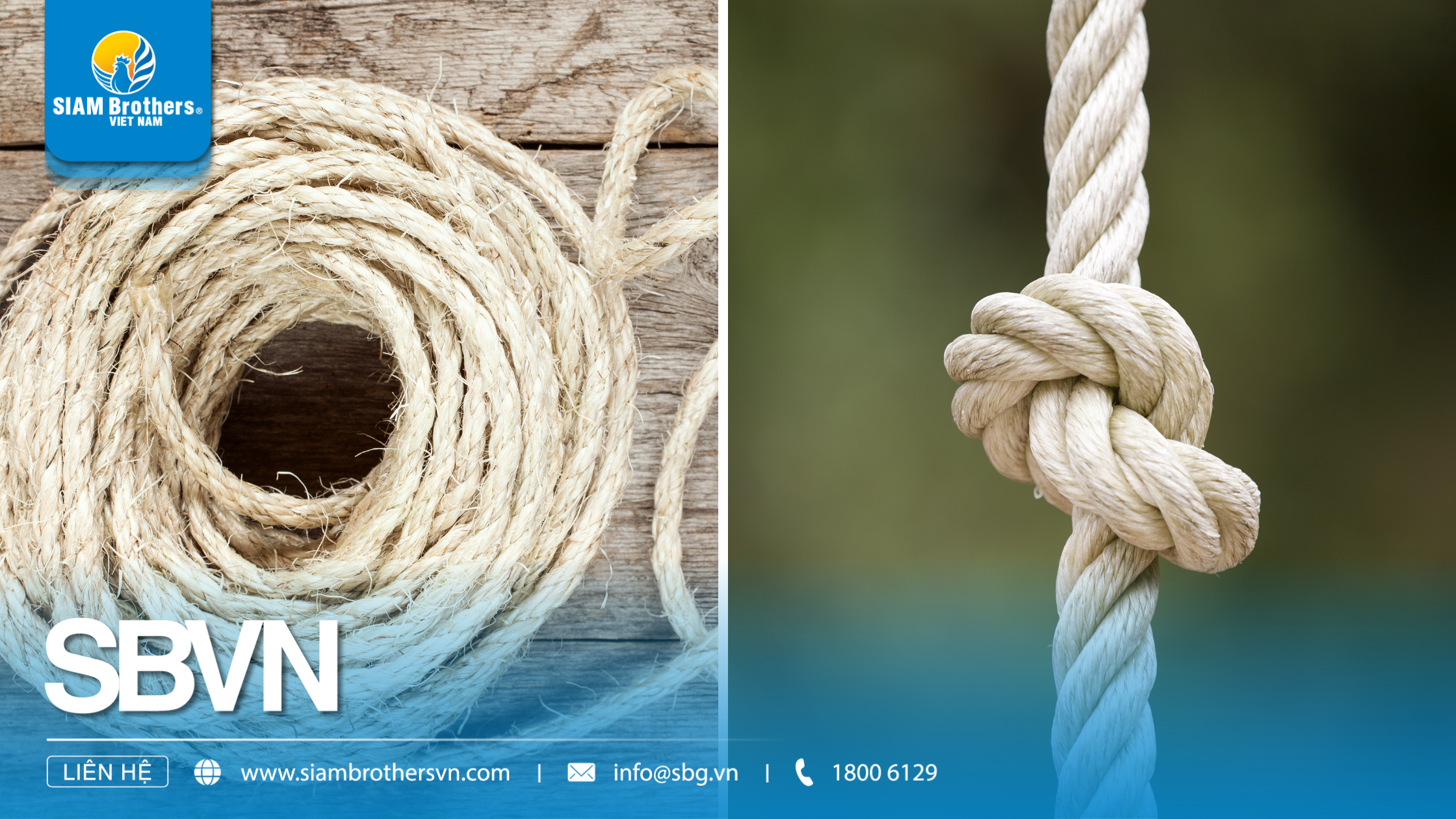As the global trend toward sustainable materials continues to rise, recycled rope has emerged as a popular alternative across various industries. But is it truly safe and durable enough to compete with virgin rope? In this article, SIAM Brothers Vietnam provides an in-depth comparison between recycled and virgin rope—evaluating their strength, cost-effectiveness, practical applications, and eco-friendliness—to help you make the right choice for your usage needs.
1. Key Characteristics of Recycled Rope
-
Eco-Friendly Alternative: Helps reduce plastic waste in oceans and on land, supporting businesses aligned with sustainable development goals.
-
More Cost-Effective than Virgin Rope: Made from reused plastic materials, typically PE (Polyethylene) or PP (Polypropylene) fibers, recycled rope offers a lower production cost—ideal for applications that do not require maximum strength.
- Highly Versatile for Temporary Use: Suitable for short-term needs such as bundling goods, securing cargo, agricultural uses, or temporary construction.
- Meets Basic Technical Standards: While not as strong as virgin rope, recycled rope still meets core rope manufacturing standards and offers sufficient tensile strength in stable environments.
- Available in Various Sizes and Types: Manufactured in a wide range of diameters and colors to match different industry-specific requirements.

Common Applications of Recycled Rope
You can find recycled rope used in:
- Inshore fishing net fastening
- Warehouse packaging and goods bundling
- Tying crops or directing water flow in irrigation systems
- Light-duty pallet production and packaging
2. What Is Virgin Rope?
Virgin rope is made directly from pure, non-recycled plastic resins. These raw materials offer high uniformity, superior purity, and outstanding strength properties—making virgin rope a premium-grade option in demanding industrial environments.
Key Characteristics of Virgin Rope
- Exceptional Durability and Load Capacity: Thanks to its pure structure, virgin rope provides higher tensile strength, abrasion resistance, and chemical resistance than recycled rope.
- Consistent Quality: Manufactured to precise specifications, ensuring stability and reliability in both performance and workplace safety.
- Extended Lifespan: Longer service life with reduced brittleness and fiber fraying over time—minimizing replacement and maintenance costs in the long run.
- Certified Quality Control: Meets strict quality assurance standards, ideal for technical industries such as maritime, logistics, and heavy-duty operations.

When Should You Choose Virgin Rope?
Consider virgin rope if your operations require:
- High safety and durability standards
- Usage in extreme environments: saltwater, intense UV exposure, or frequent impact
- Compliance with strict technical or industry-specific regulations
3. Detailed Comparison Table: Recycled Rope vs. Virgin Rope
Choosing between recycled rope and virgin rope isn't just about cost—it's also about your intended use, working environment, and technical requirements. The comparison table below highlights the key differences between these two types of rope to help you make the most informed decision.
Overview Comparison: Recycled Rope vs. Virgin Rope
| Criteria |
Recycled Rope |
Virgin Rope |
| Material |
Source Used PE/PP plastic, processed and recycled into new fibers |
Pure virgin plastic resins, not previously used or recycled |
Mechanical Strength |
Moderate – suitable for short-term or light-duty applications |
High – excellent tensile strength and load-bearing capacity, ideal for tough environments |
| UV / Saltwater Resistance |
Lower – prone to degradation with prolonged outdoor exposure |
Higher – better durability under sunlight, humidity, and marine conditions |
| Product Uniformity |
May vary due to inconsistent recycled materials |
High uniformity with minimal technical deviation |
| Cost |
20–40% cheaper – ideal for reducing initial expenses |
Higher upfront cost, but worthwhile for long-term investment |
| Best Applications |
Packaging, bundling, light agriculture |
Offshore fishing, mooring, heavy-duty towing, industrial operations |
| Average Lifespan |
Shorter (varies by use – typically 6–12 months) |
Longer (can last 2–3 years or more, depending on usage) |

4. Which Type of Rope Should You Choose?
There’s no one-size-fits-all answer when it comes to choosing between recycled rope and virgin rope—the best choice depends on your usage needs and budget. If you're unsure, use the guide below to determine which rope best fits your situation.
4.1 When Should You Choose Recycled Rope?
Recycled rope is an excellent choice if you're looking for flexibility and cost savings:
- Short-Term or Budget-Conscious Projects: Ideal for bundling goods, packaging, agricultural use, or temporary setups.
- Eco-Friendly Prioritization: Recycled rope supports plastic waste reduction by repurposing post-consumer materials.
- Large Volume, Low-Durability Needs: Perfect for projects that require significant quantities of rope without high strength demands—helping you maximize your budget.
4.2 When Should You Choose Virgin Rope?
Virgin rope is a reliable choice when your work involves heavy-duty performance and long-term use:
- Harsh Environments: Best for marine settings, direct sunlight, or salty water exposure.
- High Safety Requirements: Suitable for anchoring boats, heavy lifting, and offshore fishing.
- Long-Term Investment: While the initial cost is higher, virgin rope offers a longer lifespan and stable performance, reducing the need for frequent replacement.

Both recycled rope and virgin rope offer distinct advantages. One is an economical, eco-conscious solution, while the other delivers durability and safety in demanding conditions. So instead of asking “Which rope is better?”, ask yourself: “What do I need the rope for?”
Choose recycled rope if you need a large quantity, want to reduce costs, and care about environmental sustainability.
Choose virgin rope if you prioritize strength, durability, and longevity.
Contact SIAM Brothers Vietnam today for free consultation or to place custom orders tailored to your needs.
Source: SIAM Brothers Vietnam
Contact us:
Address: 5th floor, VRG Building, 177 Hai Ba Trung Street., Vo Thi Sau Ward, District. 12, Ho Chi Minh City, Vietnam
Tel: (+84) 28 38 912 889
Hotline: 1800 6129
Facebook: www.facebook.com/siambrothersvn
Email: info@sbg.vn
YouTube: youtube.com/@siambrothersvietnam1728
X: x.com/sbvnjsc
OA Zalo: zalo.me/1402339229697925373
App SBVN ID:

Mechanical Strength




